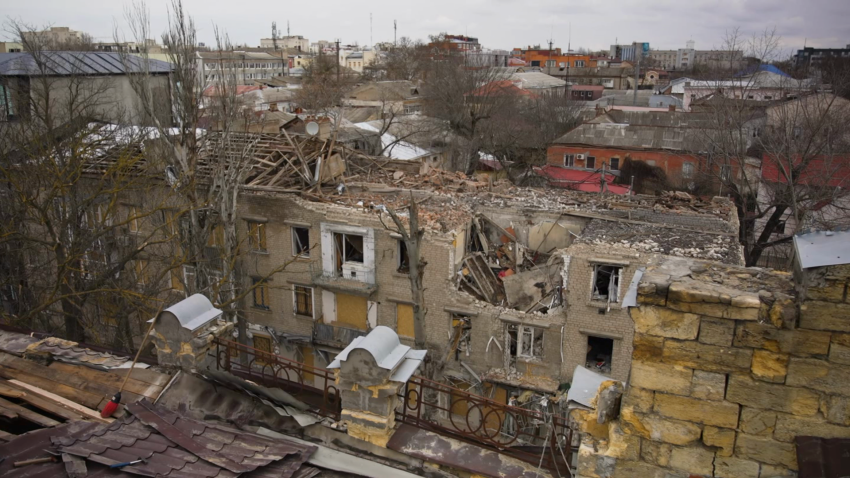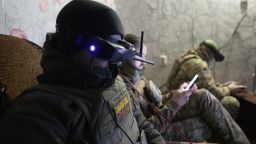Kherson, its streets peppered with broken glass and an endless storm of artillery on its horizon, feels as if it is under remote occupation.
Two years ago, it became the first major Ukrainian city to fall, as Russians forces swept in from Crimea. It was liberated by Kyiv’s forces nine months later.
Yet, as the war enters its third year, residents describe the shelling from Russian forces under a mile away across the Dnipro River as the worst yet.
Drones and artillery pound the city at a remarkable frequency, suggesting Russian forces are not burdened with the same ammunition shortages that Ukrainian troops say they face.
And despite the icy Dnipro lying between Ukrainian forces and a Russian assault, freshly dug trenches line parts of the riverside.
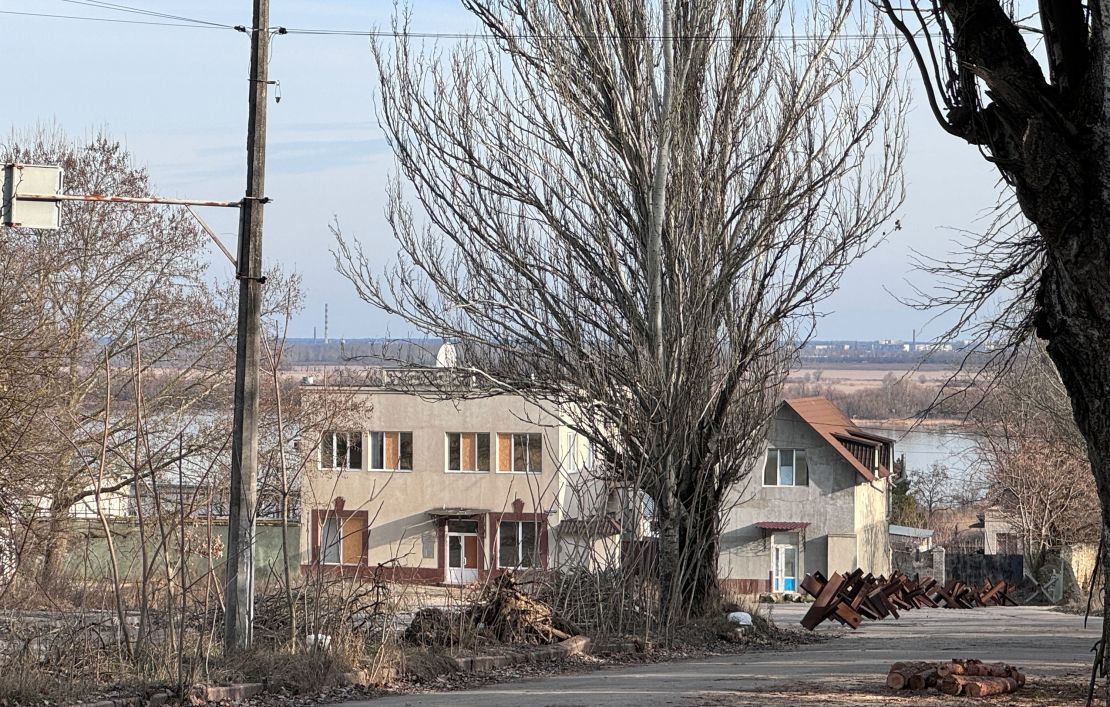
Some of the blasts may be from ongoing clashes near the tiny village of Krynky, which has gained outsize significance after Russian Defense Minister Sergei Shoigu on Tuesday told his boss President Vladimir Putin the village had essentially been cleared by advancing Russian forces.
The claim was hotly denied by Ukraine, with President Volodymyr Zelensky saying Thursday that Moscow was “only able to conduct a disinformation campaign.”
Drone footage released by Ukrainian forces showed the same Russian soldiers who raised their flag in Krynky apparently fleeing the scene moments later.
Yet the dispute and clashes over Krynky add to pessimism in Kherson. Repair workers joke they have celebrated the 10,000th window they boarded up, in a city where few buildings retain their glass.
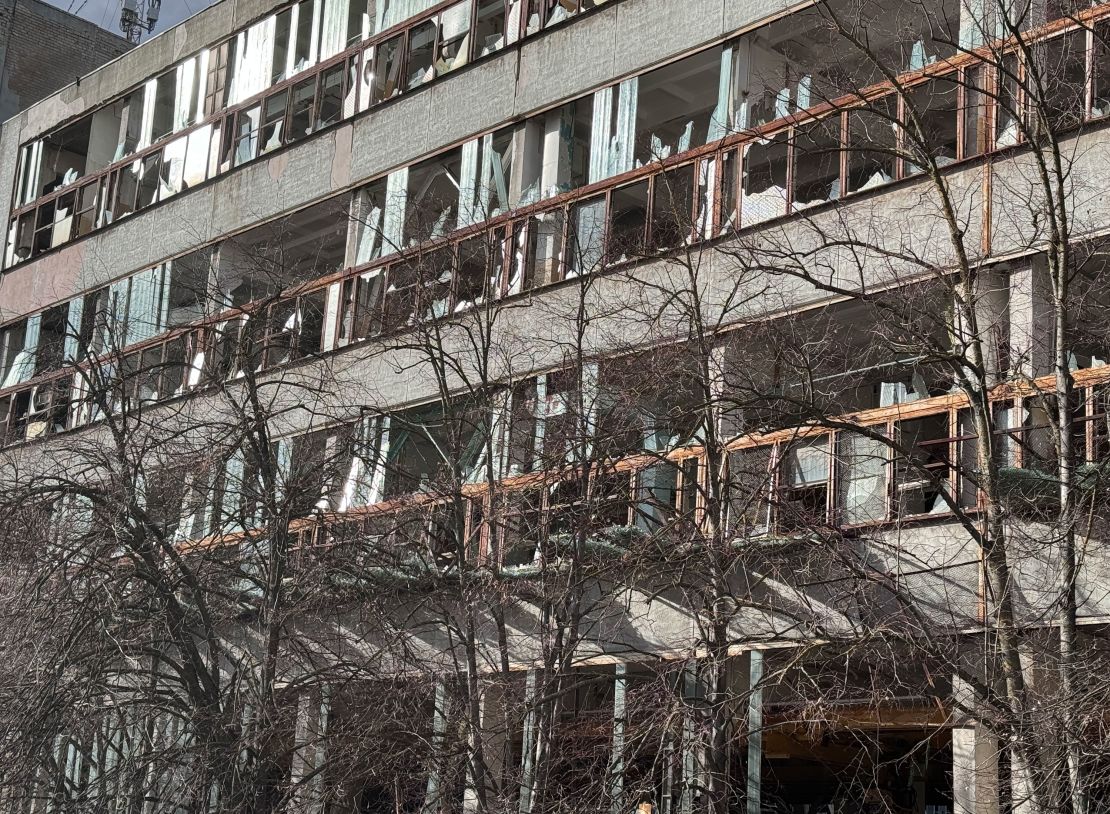
CNN witnessed the fall of the vibrant and prosperous city, the only provincial capital to be captured by Russian forces, during the first 72 hours of the war.
The city’s remaining streets seem haunted after two years of artillery duels.
At 4 a.m. on Tuesday morning, three shells landed near the home of Hrigorii, who did not want to give his surname. He said he believes a nearby hospital was the intended target.
The fact another strike had hit them before in November saved the lives of him and his wife.
Their bedroom was peppered with shrapnel last year, causing them to move to another room on his mother’s side of the house. That morning, the shrapnel tore through their old, empty bedroom again.
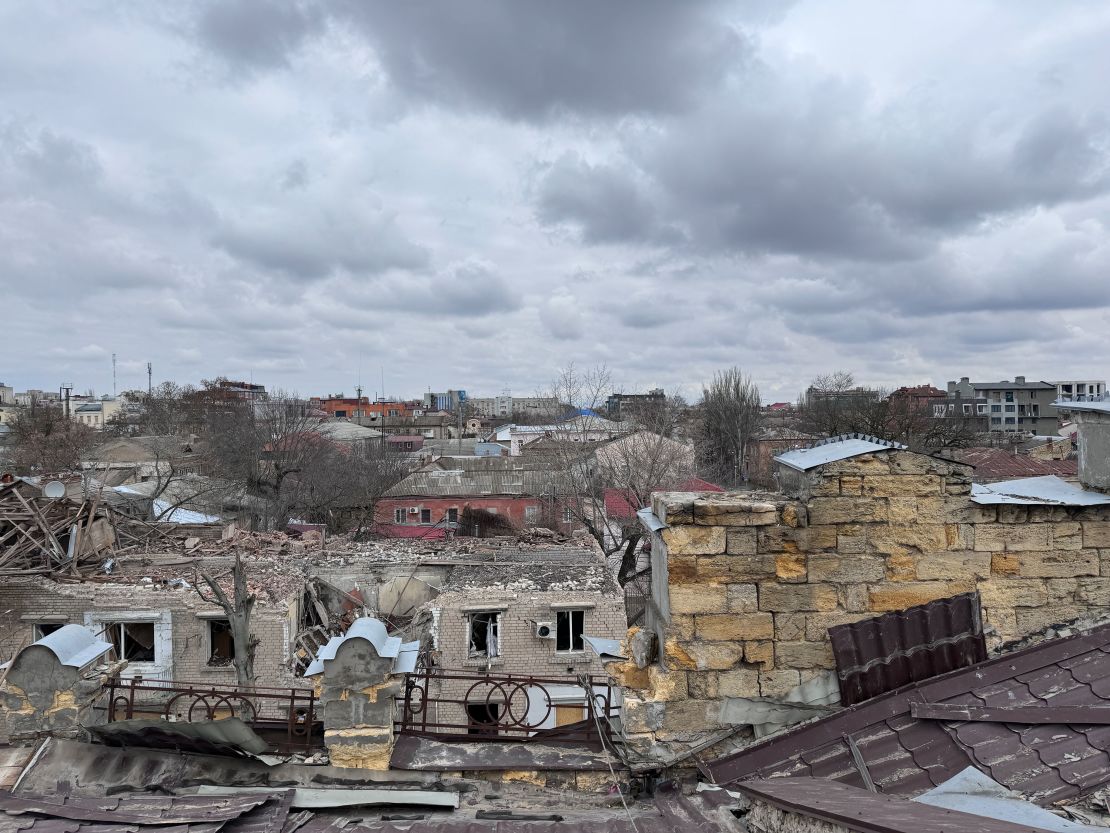
“We managed to jump off the bed and hide,” he said. The Russians, he said “just want us to leave Kherson, make us run away, and flatten the city.”
The shelling followed no pattern, sometimes hitting the center, other times the peninsula on the river, he added. “They just take a square and fire at it, then again,” he said. “You can never guess.”
Three civilians have been killed by shelling in the past week alone, according to city officials. A 39-year-old man was killed Saturday by shrapnel while preparing a roof; a 67-year-old woman killed in a park last Thursday; and a 19-year-old man killed alongside a 14-year-old girl who was injured when a playground was struck eight days ago.
It is bleak and vacant on the peninsula just outside the city center, where a strip of low-lying apartment blocks and industrial zones are separated from the rest of the city by a bridge, and visible from Russian positions across the river. Residents say only 1,000 of the area’s original 30,000 residents remain.
Most are elderly, and about 50 flock into the basement of an apartment block for an impromptu mass and hot meal. Sandbags fill the broken, tiny windows of an underground kitchen. Tetyana, a volunteer said of the shelling: “We are somehow used to it, and adapted. Sometimes we don’t sleep at night until 2 or 3 o’clock.”
The religious service marks a rare moment of company for many, after two years of whirlwind change around them. “I live alone,” said one woman who did not want to give her name. “That’s my life… I’m used to loneliness. I don’t care.”
Before singing a hymn, the pastor leads a prayer for the basics. “We tried to keep warm, to find bread, to have food. We were gathering to get through these hard times together,” he said. “It’s a hard road for all of us. But we keep walking.”
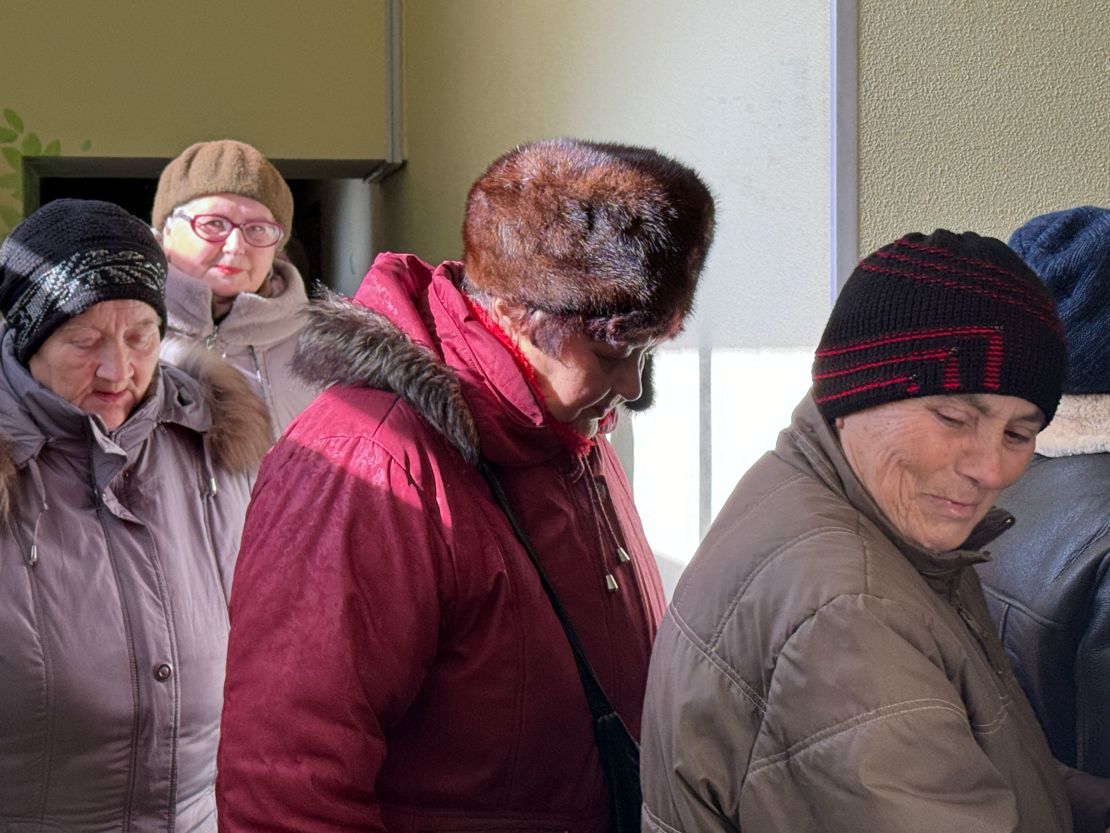
The walk is hardest for 78-year-old Sophia, the only survivor of seven siblings, who weeps as she edges on her walking frame towards the handout of a hot meal. She takes it away in a box for her adult daughter, taking pride in keeping her fed. The aid center’s clientele spread out across the courtyard in the bright sunlight, returning to their scattered and damaged homes.
Sophia scorned the idea of leaving Kherson, and said her days are a race between three different aid handouts. It is one of tenacity, not speed. Her feet were run over by a car recently, she said, as she painstakingly used her walking frame to cross a courtyard.
“I just want this war to stop,” she said, her words interrupted by a distant blast. “What do I miss? The sunshine.” She looks around the devastated and littered yard. “There were roses here, everywhere.”
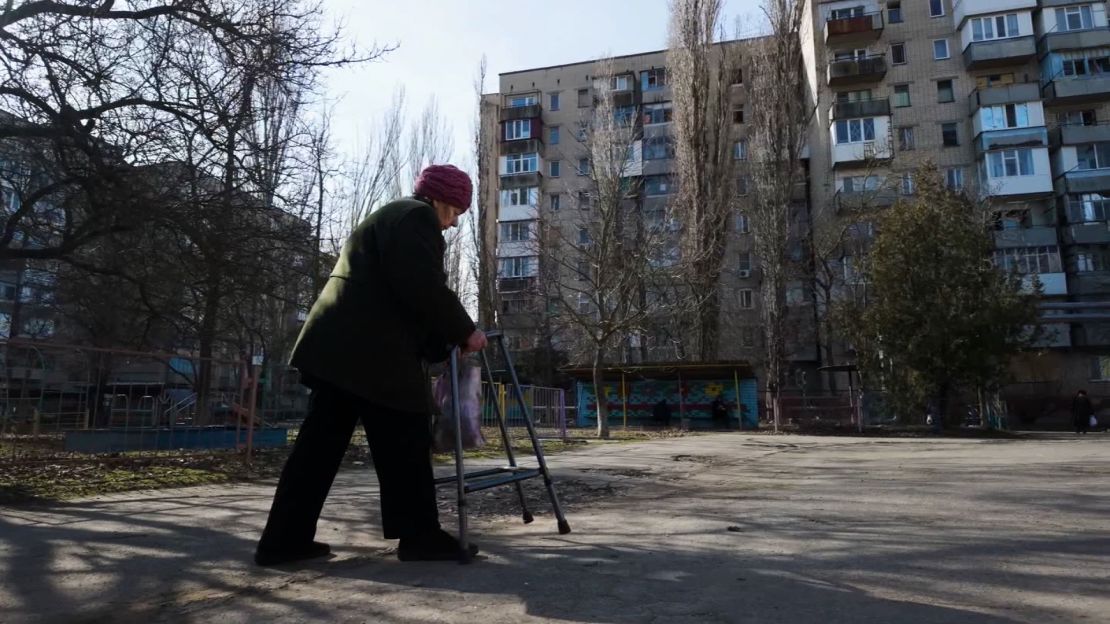
The climb to her apartment seems agonizing - a series of breathless steps, aided with the two-handed grip of a rail. Tearful at the top, she is greeted by her daughter Natalia, who wipes her eyes. These are the tiny, unseen agonies blighting ordinary, painful lives, as Putin’s war enters its third year.
“My eyes hurt…” Sophia cries, “but I don’t want anything! Except for the bright sun! Above my head.” Natalia replies: “And peaceful sky. Don’t cry, it’s gonna be ok.”
Their news comes only from a Soviet-era radio, and it is rarely good. Wednesday brought reports of the dispute around Krynky, just across the river. “Those bastards jumped on us…” Sophia said of the Russians. Natalia replied she heard they had already taken Krynky.
“No they didn’t!” her mother retorted. “I just heard, they didn’t. It’s hard, there was one assault today. What’s left of Krynky? Just an ordinary village.”
Little ordinary remains, or is spared, as the third year of war slowly swamps battered Kherson.


